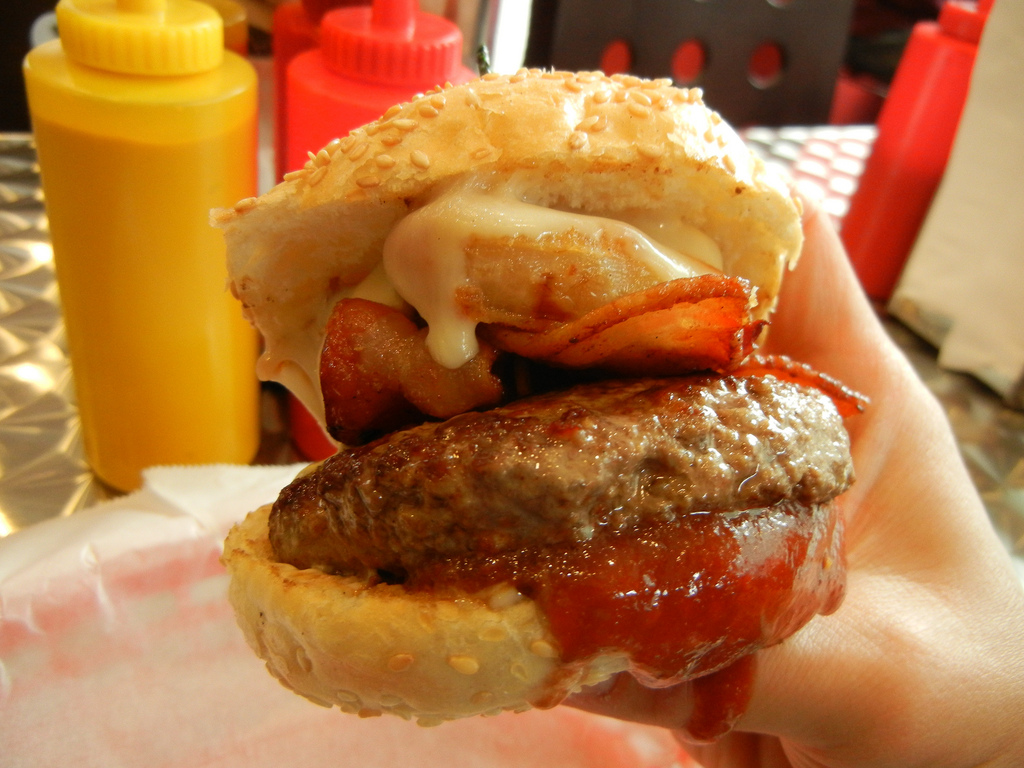I've been thinking a lot about this article by neuroscientist Michael Graziano on the psychology of eating and "feeling full." There's some great points in there about the how the experience of "fullness" is a psychological state that has a complex set of triggers and associations.
One thing he doesn't address is the anticipation of fullness when you are making food choices. When I'm hungry and in a restaurant, I am ordering what I anticipate will lead to a satisfying feeling of fullness. Will a cup of soup make me feel full? Probably not. What about a hamburger and fries and a milkshake? Probably, but that might make me feel uncomfortably too full. So I order the burger and fries, but skip the milkshake.
But we actually are just making a guess about what we will feel like in the future based on fuzzy logic and memory of how you felt after eating different food items. It's one reason why people don't order salads for dinner. They imagine that if they make that choice, at the end of the meal they won't feel full.
This has been on my mind because I have been trying to cut down on all kinds of carbohydrates. Which is a real challenge. I love rice, I love bread, I love noodles. Most people do.
The other night I was in a restaurant and I had the choice of having my meal with (1) white rice, (2) brown rice, (3) a salad or (4) half salad + half rice. I chose the brown rice. I thought it was the right choice because brown rice is somewhat healthier than white rice and I imagined that would feel fuller eating rice rather than "just" eating salad with my meal.
It turns out that they gave me a lot of brown rice. It was way more than I needed to feel full and satisfied. But at that point, I was eating and I didn't want to "waste" it, so I ate it all. Afterwards I feel uncomfortably full and sluggish, regretting my decision.
So why didn't I choose the salad or the half-salad + half-rice? One reason was that I like the taste of rice more than salad. But another was that I imagined that I would not feel full after a meal that didn't include a significant portion of carbohydrates. That may or may not be the case, but I didn't want to take the chance of feeling hungry after my meal.
My takeaway is that I should test how full I feel cutting back or completely cutting out carbs from my meals. If I eat a turkey burger without a bun will I feel a lot less satisfied? If I replace steamed veggies for rice will I feel hungry after eating an Asian meal? So far my initial experiments with this have not been as unsatisfying as I had feared. I think I can retrain my brain to make different estimates of what it will take for me to experience "fullness" after a meal.
